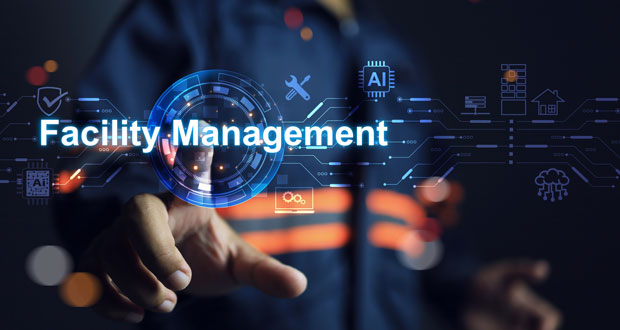With recent AI developments, there are a whole host of possibilities for the Facilities Management industry.
Over the last year, Artificial Intelligence (AI) has become the most prominent topic across mainstream and facilities management (FM) media. The drastic increase in attention makes it easy to view AI as a relatively new concept, but this is not entirely true.
Automation, and its successor, AI, have been around significantly longer than is often suggested. The main driver of this spike in attention was the introduction of Generative AI (GenAI) in 2022, which stands as a notable turning point across the industry. The breakthroughs made by advanced Large Language Models (LLM), Natural Language Processing (NLP), and Machine Learning (ML), have also gained a lot of attention.
Harnessing these developments in AI is a way forward for facilities managers. Various applications, including our own AI property management system, askporter, use automation to respond to customer queries. The digital assistant run by askporter is a bridging platform designed to capture, and then communicate requests and tasks.
The end-to-end communications and task management platform updates multiple stakeholders automatically, accurately triaging incoming requests and automating complex processes and procedures. This saves time for help desk teams, which is usually spent manually updating information, speaking to end-users and updating maintenance tasks.
The askporter web assistant is an example of how AI adoption assists facilities managers in remaining cost-efficient, while still providing great service to customers of the FM industry.
More data, less management…
AI’s rapid growth is substantial – the market for the technology is projected to reach $1,345 billion by 2030. Effective utilisation of AI can increase enterprise profit by 38 per cent and is predicted to deliver $14 trillion of gross added value to corporations by 2035.
What this shows is that businesses are increasingly turning to AI to make processes more efficient. Within FM, this change provides a clear opportunity for increased data collection and insights.
In November 2022, a research paper by the Civil Engineering Research and Innovation for Sustainability Institute in Lisbon, Portugal, found that during the operations and maintenance stage, facilities managers are faced with data from various sources.[1] Much of this goes uncollected and unprocessed.
With that data, AI could improve decision-making. It’s now a lot easier to input data into AI models and get results. For example, utilising askporter’s AI-powered digital assistant, helps facilities managers make informed decisions, anticipate needs, and drive efficiency across portfolios. The assistant captures key data, creating a log of all activities between customers and assets. By doing so, askporter’s digital assistant can help facilities and property managers make informed decisions.
Improved communication, for end users and managers…
While interacting with most large businesses, your first point of contact will likely be with an automated message. These typically require you to navigate through various menu options, offering a plug-and-play interface. For these tools, requests outside of the predetermined questions are met with an automated response stating the robot did not know the answer.
Conversational AI, unlike traditional chatbots, incorporates rapidly developing AI advancements. Modern digital assistants, such as ours at askporter, employ NLP and ML, meaning they understand user queries and provide human-like responses.
Now, digital assistants are no longer a begrudged part of the customer experience. Available 24/7 and consistently following business rules, these tools provide simple self-help solutions.
askporter’s digital assistant allows users to easily raise maintenance requests. The digital assistant can automatically triage issues, match these with priority matrices, assign correct trade types and book appointments via scheduling systems. The platform can do this while offering the convenient option to attach photos for enhanced diagnostic accuracy.
Utilising AI within FM also means that communicating a job status becomes an automatic function of FM task completion. Previously, helpdesks were slowed by the intricacies that occur between an issue being raised and its resolution. Collecting requests, deciding whether they are under contract, and applying urgency levels, meant that customer feedback was low on the priority list.
This can now be automated based on the customer’s requirements. Amending appointments, updates on engineers running late, or confirmation of job completion, can all be managed autonomously using askporter’s AI-powered platform.
AI integration will continue to drive innovation in FM…
In 2023, we saw the arrival of Generative AI onto the scene, alongside significant growth of ML, LLMs and NLP. Facilities managers are already using AI, it has not replaced humans, but instead, it has provided us with tools to run facilities well.
As we continue to integrate, facilities managers will see continued improvements in technology that increase functionality and lead to more efficiently run facilities and operations.
 If you’d like to know more about askporter or download our AI White Paper please visit: https://www.askporter.com/facilities-management
If you’d like to know more about askporter or download our AI White Paper please visit: https://www.askporter.com/facilities-management
[1] JLL, How AI is influencing facilities management, 2023.








